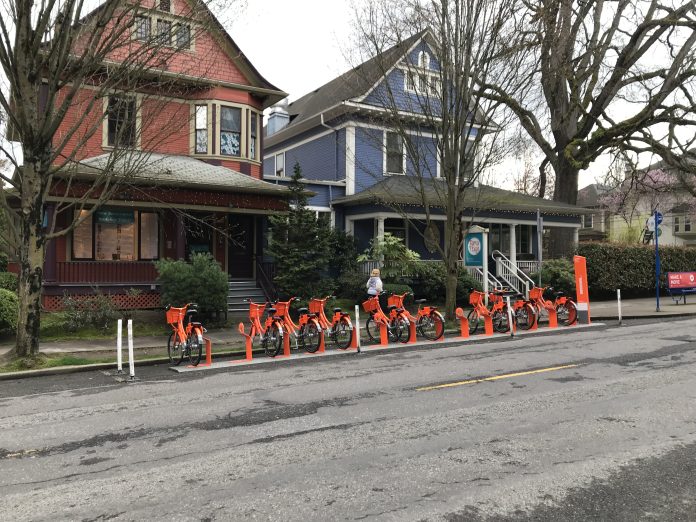Artificial island for housing: Hong Kong wants to build a new artificial island at the cost of £60 billion to 260,000 homes.
ST3 in Seattle: Seattle Subway has an idea to improve the elevated light rail options to Alaska Junction. But is there a better way to reach Central Ballard? Meanwhile, elected leaders continue debate on how to build light rail in Seattle.
Where are the teachers?: Washington continues to have a dramatic teacher shortage ($) that is growing.
LON putting public health first: London plans to roll out an ultra low emissions zone to reduce environmental impacts of polluting cars.
The logical conclusion: According to a new study, good pedestrian and bike infrastructure leads to healthier communities.
Upping IZ in BOS: Boston is poised to increase their inclusionary zoning requirements for affordable housing production.
Listen to the kids: Amsterdam’s nine-year-old “bike mayor” has ideas on how to make streets safer for children.
PDX gas tax: Portlanders will get a chance to reauthorize a local gas tax to fund multimodal transportation projects.
AMZN’s record sale: Amazon’s Troy Block complex sold in record-breaking $740 million deal.
Thwarting public willing in PHX: Phoenix legislators want to steal billions of dollars set aside for light rail and spend it on roads.
Preventable tragedy in North Seattle: Two people died in North Seattle this week after a carjacker turn into a rampage shooting them and at a King County Metro bus ($); the bus operator was injured but recognized as a hero.
Millennials killed trends, too: Millennials appear to be driving a lot despite trends toward walking, biking, and transit.
An approach to watch: Brightline is officially getting rebranded to Virgin Trains USA and is looking for infill station opportunities in addition to partnership with local transit agencies and expansion.
GEG connecting all: Spokane’s transit agency is poised to offer free transit passes to people receiving homelessness assistance.
AMS climate action: Amsterdam is taking climate action seriously and plans to remove 1,500 car parking spaces per year, which will be replaced with green spaces, wider sidewalks, and bike facilities.
Getting bike lanes done: Could Seattle create a new framework to ensure that the city transportation department implements adopted plans for bike facilities as intended?
Stephen is a professional urban planner in Puget Sound with a passion for sustainable, livable, and diverse cities. He is especially interested in how policies, regulations, and programs can promote positive outcomes for communities. With stints in great cities like Bellingham and Cork, Stephen currently lives in Seattle. He primarily covers land use and transportation issues and has been with The Urbanist since 2014.



